When you think of Russian literature, one of the first names that comes to mind is Fyodor Mikhailovich Dostoevsky. The author and journalist is widely regarded as one of the greatest writers of all time, as well as one of the most influential. He was arrested in 1849 for belonging to a literary group that read banned books, and was sentenced to death for his troubles. The sentence was commuted and Dostoevsky spent a total of ten years in prison or exile.
The works he wrote, which includes 13 novels, three novellas, and 17 short stories, are now some of the most widely read works of Russian fiction on the planet. Everyone from Albert Einstein to Marilyn Monroe was a fan, and authors like Ernest Hemingway and Virginia Woolf cited him as one of the greats. Reading his work can seem incredibly daunting but it's vibrant, prescient, and relevant to this day. Here are some of Dostoevsky's most notable books.
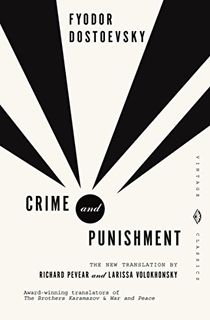
Crime and Punishment
Perhaps the most famous work by Dostoevsky, Crime and Punishment looms large over the entirety of 19th century literature. It was the second of his full-length novels and is often celebrated as the first true sign of his maturation as an author.
The protagonist is Rodion Romanovich Raskolnikov, a former law student living in extreme poverty in Saint Petersburg. Desperate for cash, he plans to kill an old woman pawnbroker whose flat is full of money and valuables. He initially justifies the deed as one of an intrinsically positive nature, a way for him to even the playing field and allow men like him to rise up the ranks.
But, once the deed is done, he becomes overwhelmed with guilt and disgust. The theories he treasured are quickly replaced by the unavoidable horror of what he has done to another living soul. Crime and Punishment quickly became a favorite text of many psychoanalysts of the era, such as Freud and Sartre.
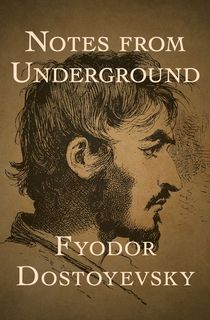
Notes from Underground
First published in the Russian literary journal Epoch in 1864, Notes from Underground is a first-person novella about an unnamed narrator and his confession. The protagonist is a lonely, bitter old man who is a retired civil servant living in St. Petersburg. He has withdrawn from normal life to live in complete retreat from society. The notes he writes form a furious narrative on his ideas of social utopianism and the ultimate curse of man.
He is cruel, elitist, often contradictory in his points, and sees no hope for his fellow humans. Dostoevsky wrote Notes from Underground at a time of immense cultural flux in Russia, with a major increase in revolutionary activity and the country's intellectuals engaging in Western theories. His novella influenced the likes of Kafka's The Metamorphosis, the writings of Friedrich Nietzsche, and even Martin Scorsese's Taxi Driver.
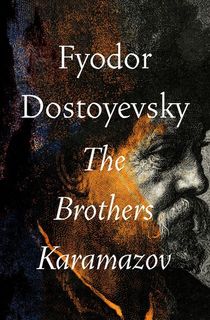
The Brothers Karamazov
Dostoevsky spent nearly two years writing The Brothers Karamazov, which was published less than four months before his death in 1880 at the age of 59. The trio of brothers of the title are: Dmitri, a hedonist who has fallen in love with the beautiful and fiercely independent Grushenka; Ivan, the aloof but intellectual middle brother who infamously declares, "If there is no God, everything is lawful"; and Alexei, a novice in the local Russian Orthodox monastery whose strident faith often puts him at odds with his family.
The battle between faith and atheism is a major theme in the novel, as well as the notion of freedom from outside or perceived forces. Sigmund Freud called The Brothers Karamazov "the most magnificent novel ever written" and Marilyn Monroe was a fan (she famously wanted to star as Grushenka in a film adaptation, which sadly never happened).
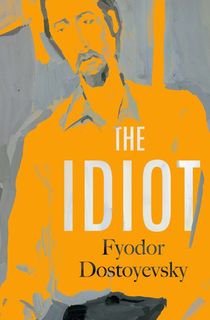
The Idiot
Critic Gary Saul Morson once said that The Idiot "violates every critical norm and yet somehow manages to achieve real greatness." Dostoevsky himself considered it his favorite of his own works, even though he didn't think his experiment with the form entirely worked. "I do not stand behind the novel, but I do stand behind the idea," he said.
First published serially in the journal The Russian Messenger in 1868–69, the idiot of the title is Prince Lev Nikolayevich Myshkin, a young man whose earnestness and lack of cynicism lead many of the more worldly characters he encounters to mistakenly assume that he is totally lacking in intellect. Dostoevsky wanted to create a truly good man, and portray how his lack of ego put him in conflict with a world dominated by it.
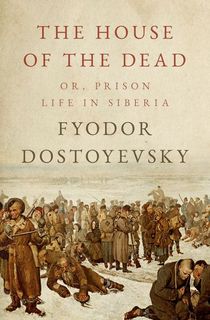
The House of the Dead
Dostoevsky served four years of exile with hard labour at a prison camp in Siberia, where he was classified as "one of the most dangerous convicts" there. He suffered intense mental and physical pain, was only permitted to read the Bible, and was forced to share a toilet with over 200 other prisoners.
Once he was able to return to St. Petersburg, Dostoevsky wrote The House of the Dead, based on his experiences. The novel portrays the life of convicts in a Siberian prison camp, with the narrator, Aleksandr Petrovich Goryanchikov, having been sentenced to ten years of hard labor for murdering his wife. The novel doesn't have much of a plot but is detailed and empathetic in its portrayal of the hardship suffered by prisoners in these camps.
Aleksander's spiritual awakening was heavily influenced by Dostoevsky's own transformation during his imprisonment. The House of the Dead was the only work by Dostoevsky that his literary contemporary Leo Tolstoy admired.
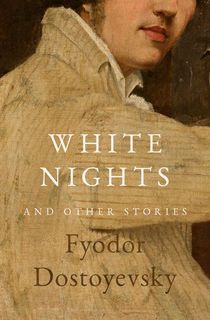
White Nights
One of the earliest published short stories in Dostoevsky's career, White Nights is the story of a young man suffering from extreme loneliness. Told in first person, the story follows the protagonist through the streets of St. Petersburg as he meets and begins to fall for a young woman.
Unfortunately, she does not reciprocate his feelings and misses her lover, who is out of the city during this time. White Nights is one of Dostoevsky's most frequently adapted works, having been made into films by Robert Bresson, Luchino Visconti, and Paul Vecchiali.
Featured image via Vasily Perov, c. 1872 / Wikimedia
